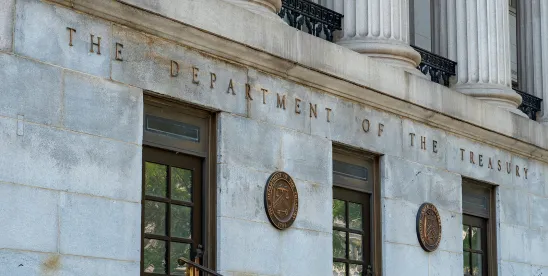Proposed Treasury Regulations (the “Proposed Regulations”) have recently been issued to update and clarify existing reporting obligations for U.S. persons who receive gifts from abroad or who are owners or beneficiaries of foreign trusts.[1] These gifts, ownership interests, and distributions are required to be reported annually to the Internal Revenue Service (“IRS”) using Form 3520, Annual Return to Report Transactions with Foreign Trusts and Receipt of Certain Foreign Gifts. The Proposed Regulations provide guidance under Internal Revenue Code (“IRC”) Sections 643(i), 679, 6039F, 6048, and 6677 with respect to reporting receipt of large foreign gifts, transactions with foreign trusts, and loans from, and uses of, property of foreign trusts.
Foreign Gifts
IRC Section 6039F requires U.S. persons to report the receipt of large gifts from a foreign person during the U.S. person’s tax year on Form 3520. The reporting threshold is a gift or gifts, in the aggregate, of more than $100,000 received by the U.S. person from foreign individuals and/or foreign estates during the applicable tax year. Special rules apply in the case of gifts from foreign partnerships and corporations. The Proposed Regulations would increase the threshold amount for reporting gifts from foreign individuals or foreign estates by a cost-of-living adjustment and clarify the rules for aggregating foreign gifts from persons related to the transferor.
The receipt of any gifts or bequests from a foreign individual or estate meeting the reporting threshold requires the U.S. person to report the date of the gifts or bequests, a description of the property received, and the fair market value of the property received. The Proposed Regulations would now also require disclosure of the donor of the reportable gift in all circumstances, removing the anonymity of the foreign individual donor or foreign estate under current law. Under current rules, the IRS only requires a donor’s identifying information (name, address, and any identifying number) for gifts from a foreign partnership or corporation.
In addition, the Proposed Regulations incorporate a new anti-avoidance rule allowing the IRS to recharacterize certain loans from abroad to U.S. persons as reportable gifts. Proposed Regulation Section 1.6039F-1(b)(2) would require gift treatment if all of the following requirements are met: (i) the IRS concludes that the amount received is in substance a gift based on the facts and circumstances; (ii) the recipient does not treat the amount received as a gift, bequest, devise, or inheritance; and (iii) the recipient does not treat the amount received as taxable income. As a result, taxpayers who receive bona fide loans from foreign persons should carefully substantiate the debt with a written loan agreement and promissory note and make payments of required interest and principal.
Failure to timely file and report gifts to a U.S. person from a foreign individual or estate is subject to civil penalties of up to 25 percent of the amount of the gift. The Proposed Regulations will allow the IRS to issue assessable penalties against a non-complying taxpayer, placing the taxpayer on the defensive, rather than following deficiency procedures, which provide the taxpayer with notice and an opportunity to challenge the penalty before assessment.
Foreign Trusts
The Proposed Regulations provide guidance for the reporting of transactions with foreign trusts and include a broader exception for certain tax-favored foreign trusts. A trust will be classified as foreign trust for U.S. income tax purposes unless (i) all substantial decisions are made for the trust by one or more U.S. persons (commonly known as the “control test”), and (ii) a court within the United States is able to exercise primary supervision over the administration of the trust (commonly known as the “court test”). In general, U.S. persons are subject to reporting obligations using Form 3520 under existing rules if they: (i) transfer property to a foreign trust or engage in certain other transactions with a foreign trust; (ii) receive distributions from a foreign trust; or (iii) are treated as the owner of a foreign trust.
In addition to the foregoing reporting obligations, the Proposed Regulations provide additional guidance on the treatment of loans involving foreign trusts, the uncompensated use of foreign trust property, the application of grantor trust rules to foreign trusts, and the easing of the qualification rules for exceptions to reporting for foreign pensions and foreign retirement accounts of U.S. persons.
Effective Date
The Proposed Regulations are to apply to transactions with foreign trusts and the receipt of foreign gifts in tax years beginning after the date on which the final regulations are published. However, a taxpayer may rely on the Proposed Regulations for any tax year ending after the date of their publication (May 8, 2024) and beginning before the date the final regulations are published, provided that the taxpayer and related parties apply the Proposed Regulations in their entirety and in a consistent manner for all tax years beginning with the tax year of first reliance.
Notwithstanding the Proposed Regulations, the reporting requirements for a U.S. person’s involvement with a foreign trust or receipt of foreign gifts or bequests are cumbersome and complex.
[1] Proposed Reg.124850-08.



 />i
/>i

